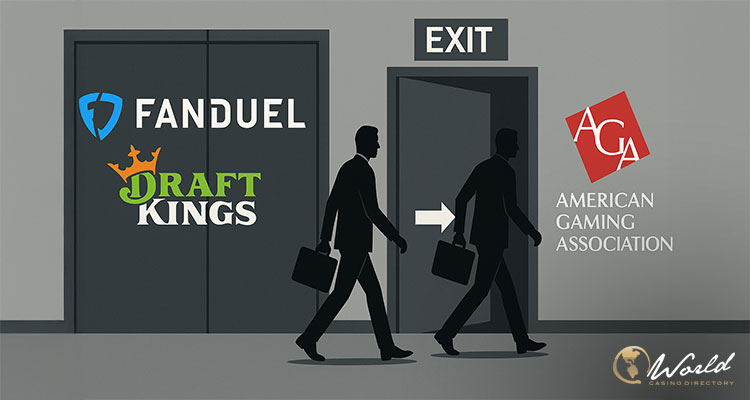The two most prominent US sports betting platforms, FanDuel and DraftKings, have officially stepped away from the American Gaming Association as both companies advance into the rapidly expanding world of prediction markets. Their departures follow months of emerging tension over how sports-related event contracts should be regulated, particularly as the operators laid out their intentions in recent Q3 earnings reports.
Industry Rift Over Federal vs. State Oversight
The split followed discussions at the AGA’s Public Policy Committee meeting in Washington, D.C., where the topic of prediction markets and their place in the legal betting landscape was a focal point. Prediction markets operate under the jurisdiction of the Commodity Futures Trading Commission in all 50 states, and are not categorized as gambling products under state law. This regulatory divide put the AGA and its casino-driven membership at odds with the direction that tech-driven operators like DraftKings and FanDuel are pursuing.
FanDuel acknowledged the divergence in priorities in a statement issued to The Closing Line: “FanDuel has built our business by maintaining strong industry partnerships. We value the spirit of collaboration that comes with these relationships. But as we expand into prediction markets, we recognize this direction is not aligned with the American Gaming Association’s current priorities for its member operators. After thoughtful consideration, we have decided to step back from our AGA membership at this time. FanDuel has always been the company that moves quickly, from daily fantasy to mobile sports betting to prediction markets. We build what consumers want and we operate with an unwavering commitment to integrity.”
DraftKings issued a similarly direct message: “As the company’s business strategy evolves — including with prediction markets — DraftKings determined that its plans no longer fully align with the AGA’s direction in certain areas and has decided to relinquish its membership.”
According to the AGA, the resignations were accepted immediately: “In discussion with DraftKings and FanDuel, the AGA has accepted their request to relinquish their membership, effective immediately. We wish them the best, and we expect to maintain close ties in our mission to promote and protect legal, regulated gaming.”
Prediction Markets Reshape Competitive Dynamics
Over the past year, prediction markets have exploded in popularity, led by Kalshi, which now sees more than a billion dollars traded weekly on sports outcomes. One reporter summarized the rapid shift in the marketplace by saying, “Welp, things are escalating quickly.” Reports indicate that the broader prediction market industry reached an all-time weekly high of $2.3 billion in trading volume in October.
FanDuel and DraftKings chose to develop prediction market products rather than yield the space to Kalshi, PrizePicks, Underdog, and an upcoming US-facing launch from Polymarket. Both major operators recently left Nevada after clashes with regulators regarding Contracts for Difference, and each has planned launches—FanDuel Predicts with CME, and DraftKings Predictions following its acquisition of Railbird.
State authorities have taken different approaches in recent months. Several regulators have issued cease-and-desist letters to prediction market platforms, arguing that these products constitute sports betting without proper licensure. Cases involving Kalshi are active in multiple courts, and the long-term legality remains uncertain.
The situation also reveals contrasting strategies across the industry. Legacy casino companies such as Caesars, MGM, and Penn Entertainment have opted not to move into prediction markets, while digital-first firms—including FanDuel, DraftKings, PrizePicks, and Underdog—have embraced them. Casino operators maintain costly physical properties and large workforces, while technology-based companies operate leaner online-focused models.
Even with the departures, the Sports Betting Alliance—made up of FanDuel, DraftKings, bet365, BetMGM, and Fanatics—will continue lobbying alongside the AGA for legalized sports betting in remaining states.
As the industry shifts, the AGA may now be positioned to present a clearer stance on prediction markets without internal division. Meanwhile, FanDuel and DraftKings appear committed to pursuing what they view as a high-growth opportunity, even as legal debates continue nationwide.


